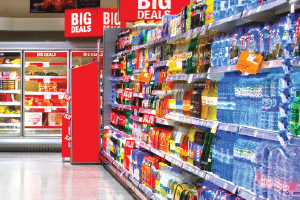
Conflicts between retailers and manufacturers are increasingly common. When these conflicts escalate, retailers may decide to take specific products off the shelves, or manufacturers can make their products unavailable. These manoeuvres are known as conflict delistings.
In 2009, for instance, US retailer Costco didn’t stock Coca Cola products for weeks due to a dispute over pricing. In 2013, UK’s biggest retailer Tesco decided to delist dozens of items produced by Princes, including oil, canned meat, and soup. And only recently, a retailer in the Netherlands stopped carrying all Heineken products. The retailer, Jumbo, even encouraged its customers to switch to another brand of beer.
Doctoral student Sara Van der Maelen examined the consequences of conflict delisting for both the retailer and the manufacturer. The doctoral research was supervised by Els Breugelmans and Kathleen Cleeren. Van der Maelen’s case study involved delistings of over 20 brands in 60 product categories.
The researchers found that conflict delistings harm both parties involved: the manufacturer’s sales went down by 4.33%, and retail sales were even reduced by 8.75%. This is because customers in the case study were more loyal to the brand than to the retailer.
“Retailers and manufacturers should think twice before sticking to their guns in negotiations,” concludes Sara Van der Maelen. “Taking products off the shelves can have major consequences for both parties involved. Sales figures suffer most when the conflict delisting involves products that typically appear on consumers’ shopping lists. As consumers have planned these purchases before going to the store, they will miss the product more. The impact is much smaller in the case of impulse purchases.”
The study also shows that retailers have a stronger negotiation position when the conflict pertains to a product category of which they carry a large assortment. But when manufacturers have a strong brand, they can count on consumers’ willingness to switch stores to buy the brand.





















